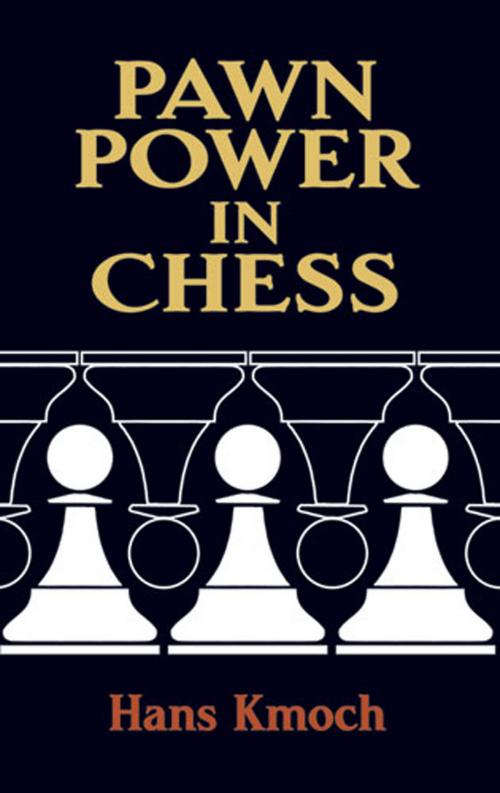| Author: | Hans Kmoch | ISBN: | 9780486319698 |
| Publisher: | Dover Publications | Publication: | April 9, 2013 |
| Imprint: | Dover Publications | Language: | English |
| Author: | Hans Kmoch |
| ISBN: | 9780486319698 |
| Publisher: | Dover Publications |
| Publication: | April 9, 2013 |
| Imprint: | Dover Publications |
| Language: | English |
"One of the few books…which, at a glance, one can recognize as an immortal." — Chess.
The proper use of pawns — of paramount importance in chess strategy — sometimes even puzzles experienced players. This profoundly original and stimulating book by an International Master and prolific chess writer offers superb instruction in pawn play by isolating its elements and elaborating on various aspects.
After a lucid exposition of the fundamentals and the basic formations of one or two pawns that virtually constitute the keys to winning chess strategy, the reader is shown a multitude of examples demonstrating the paramount significance of elements of pawn manipulation. The author’s masterly explanation makes it perfectly clear to the beginner as well as the advanced player how the fate of a game depends on pawn formation and how pawn power holds the proceedings under its remote control. Over 180 games and diagrams illustrate the author’s theory and make it easy to follow the points made in the text.
Hans Kmoch played with distinction in several international tournaments and is the author of a number of books and columns on chess and chess tournaments.
“We consider it the best publication on chess strategy since the end of World War II.” — Die Welt.
"One of the few books…which, at a glance, one can recognize as an immortal." — Chess.
The proper use of pawns — of paramount importance in chess strategy — sometimes even puzzles experienced players. This profoundly original and stimulating book by an International Master and prolific chess writer offers superb instruction in pawn play by isolating its elements and elaborating on various aspects.
After a lucid exposition of the fundamentals and the basic formations of one or two pawns that virtually constitute the keys to winning chess strategy, the reader is shown a multitude of examples demonstrating the paramount significance of elements of pawn manipulation. The author’s masterly explanation makes it perfectly clear to the beginner as well as the advanced player how the fate of a game depends on pawn formation and how pawn power holds the proceedings under its remote control. Over 180 games and diagrams illustrate the author’s theory and make it easy to follow the points made in the text.
Hans Kmoch played with distinction in several international tournaments and is the author of a number of books and columns on chess and chess tournaments.
“We consider it the best publication on chess strategy since the end of World War II.” — Die Welt.















